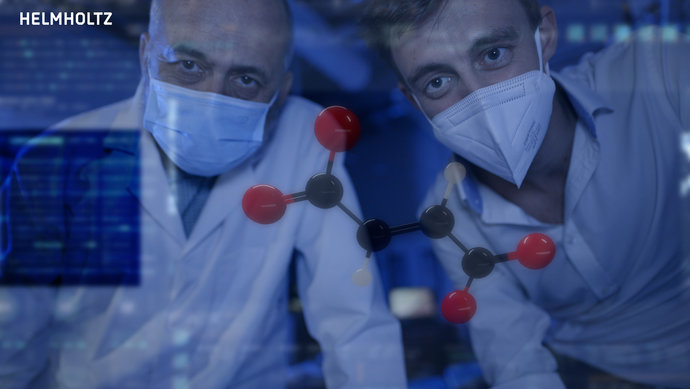
The “Erwin Schrödinger Prize 2021 — The Stifterverband Science Award” goes to an international team at the Helmholtz Institute Mainz HIM, a cooperation of the GSI Helmholtz Centre for Heavy Ion Research and the Johannes Gutenberg University Mainz: With the cost-effective and extraordinary amplification of magnetic resonance signals, the experts have developed a technique that has promising uses in analytics.

In the large ring accelerator SIS100, the heart of the future accelerator center FAIR, various unique and custom-made magnets and entire magnet systems will ensure that the ion beam is precisely guided and focused. Series production of a crucial magnet group, the quadrupole modules, has recently started.
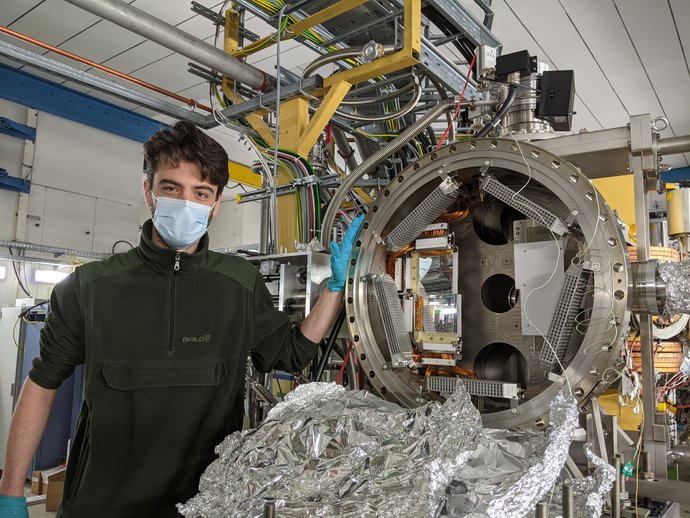
Another ERC Grant has been awarded for research closely connected with FAIR and GSI. Dr. Carlo Bruno, a Chancellor’s Fellow at the University of Edinburgh (UK), is one of the 397 researchers across Europe to receive a so-socalled ERC Starting Grant this year. His project “Elements in the Lives and Deaths of stARs (ELDAR)“ will address how stars synthesize new elements and how these elements are disseminated into our galaxy.
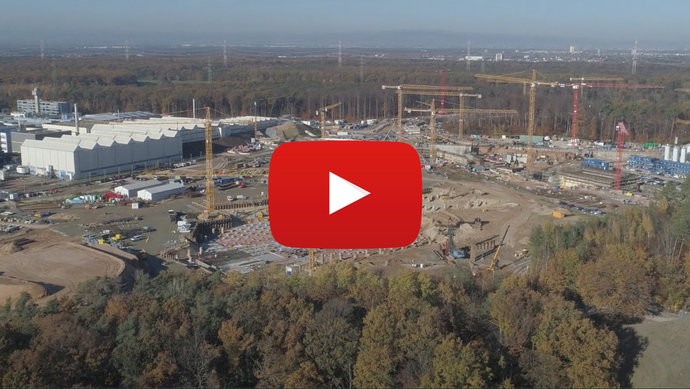
Great progress has been made and important stages have been completed on the FAIR project, one of the largest construction projects for research in the world. A new time-lapse video created with sophisticated filming technology makes the developments of the past four years at the construction site of the international particle accelerator facility particularly tangible.
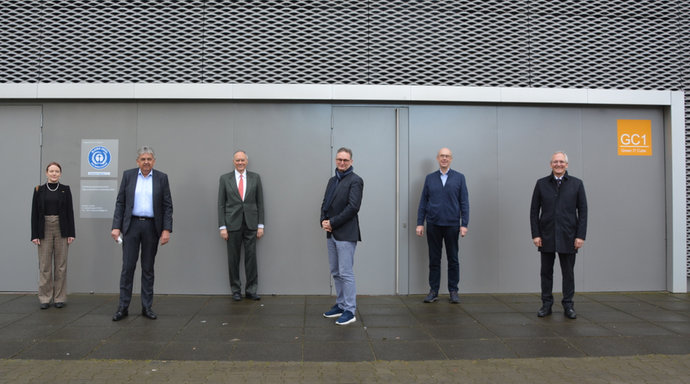
Oliver Stirböck, member of the Hessian parliament, recently visited GSI and FAIR. One of the main topics was the energy-efficient supercomputing center Green IT Cube. He was welcomed by Professor Paolo Giubellino, Scientific Managing Director of GSI and FAIR, Dr. Ulrich Breuer, Administrative Managing Director of GSI and FAIR, Jörg Blaurock, Technical Managing Director of GSI and FAIR, as well as Dr. Helmut Kreiser, Group Manager DataCenter/Green IT Cube and Carola Pomplun from the Public…
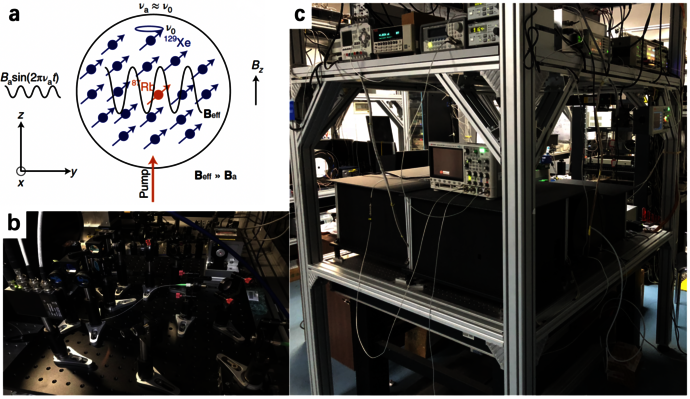
An international team of researchers with participation of the Cluster of Excellence PRISMA+ of the Johannes Gutenberg University Mainz (JGU) and the Helmholtz Institute Mainz (HIM) has successfully advanced a laboratory method to search for extremely light “axion-like” particles (ALPs), which are possible canditates for being the elusive dark matter. The researchers use nuclear magnetic resonance techniques in their experiments: by using a new setup, they have now been able to increase the…
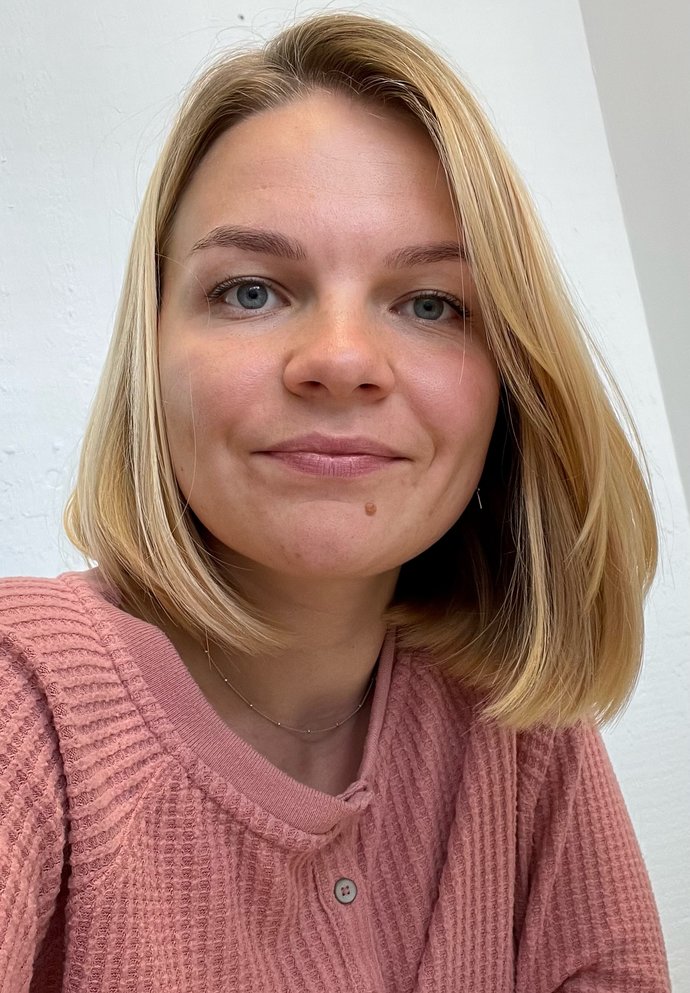
The FAIR-GSI PhD Award 2021 went to Dr. Daria Kostyleva. The award was presented recently during a virtual colloquium by Professor Paolo Giubellino, Scientific Managing Director of FAIR and GSI, and Daniel Sälzer, Managing Director of Pfeiffer Vacuum GmbH. This annual award is sponsored by Pfeiffer Vacuum and endowed with 1000 euros.
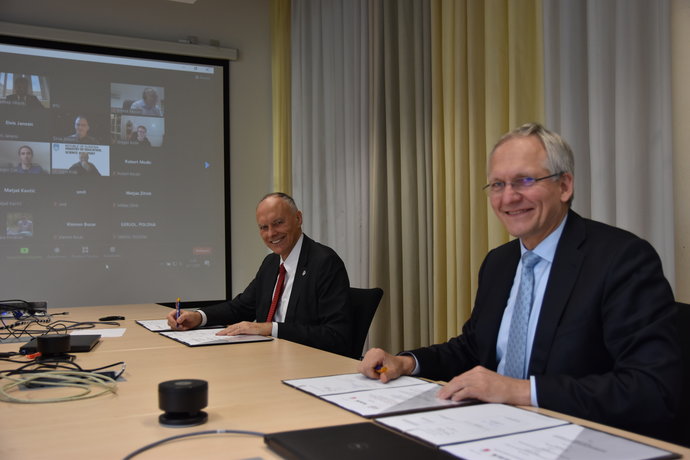
Recently, representatives of GSI/FAIR participated in the virtual "FAIR Day Slovenia" of the Jožef Stefan Institute. "Academia meets Business" was the motto of the workshop. The meeting's objective was to bring together scientists, technical experts, industry partners and the funding agency. The aim was also to outline the progress of the civil construction and the achievements of the FAIR's precursor program FAIR Phase 0, as well as to inform about Slovenia's participation at FAIR on all fronts…
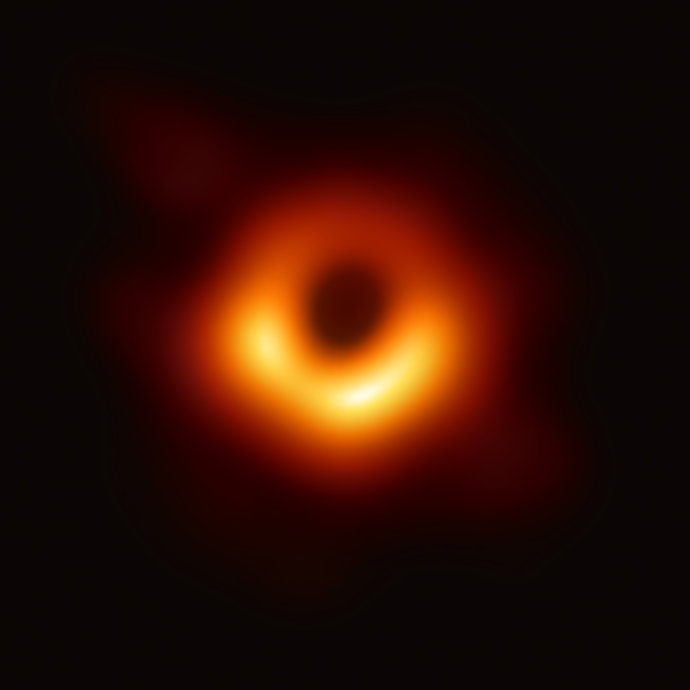
The new program of the lecture series “Wissenschaft für Alle” of GSI and FAIR for the first term of 2022 has made it its motto to visualize the invisible. It is about the small and big aspects in microscopy and space as well as about possibilities to make information perceptible and tangible. The series will continue in an online format until further notice; interested parties can connect to the video conference events via a dial-up link using an internet-enabled device such as a laptop, cell…












